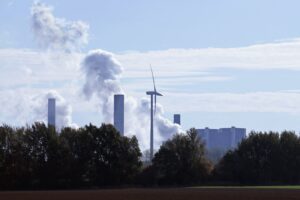
According to a shocking new study, the global population will lose 17 billion years of life because of air pollution. The researchers found that nearly all of the world’s population are now breathing polluted air, and this could be reducing their life expectancy by over 2 years each.
The health risks of pollution, like decreased lung function and increased chances of suffering from asthma and bronchitis, have been a concern for some time.
Now, this study shows that 99% of people now live in locations with higher pollution levels than is deemed safe. This is knocking an average of 2.2 years of people’s life expectancy, which comes to a total of 17 billion years of life.
The quality of air varies vastly between countries. In South and Southeast Asia, 99.9% of the population breathes unsafe air, and people in those regions are expected to lose approximately 5 years of their lives on average due to persistently high levels of pollution.
In the United States, 92.8% of the population are now considered to be living in areas with unsafe levels of pollution and in Europe, this figure is 95.5%.
How air pollution affects the body
Some of the most common sources of pollution include road transport, industrial factories, burning fuels, power generation, and wildfires, all of which produce pollutants like nitrogen dioxide and particulate matter.
Air pollution is invisible but impossible to avoid in most towns and cities. The microscopic pollutants can take a huge toll on people’s health by entering the respiratory and circulatory systems and causing damage to the lungs and heart.
Can the problem be reversed?
The researchers point out that improvements can be made to address this issue. According to Dr. Greenstone, who was part of the study, “history teaches us that it does not need to be this way. In many places around the planet, like the United States, strong policies, supported by an equally strong willingness for change, have succeeded in reducing air pollution,”
In 2019, pollution fell by 9% and, in 2020, it fell by about 40%. Additionally, China, which is one of the world’s biggest polluters, has steadily reduced pollution since 2013.
This has also been the case in Europe and the US. The researchers note that both regions have “sustained enforcement of strong air pollution policies in the United States and Europe have significantly reduced particulate pollution.”



